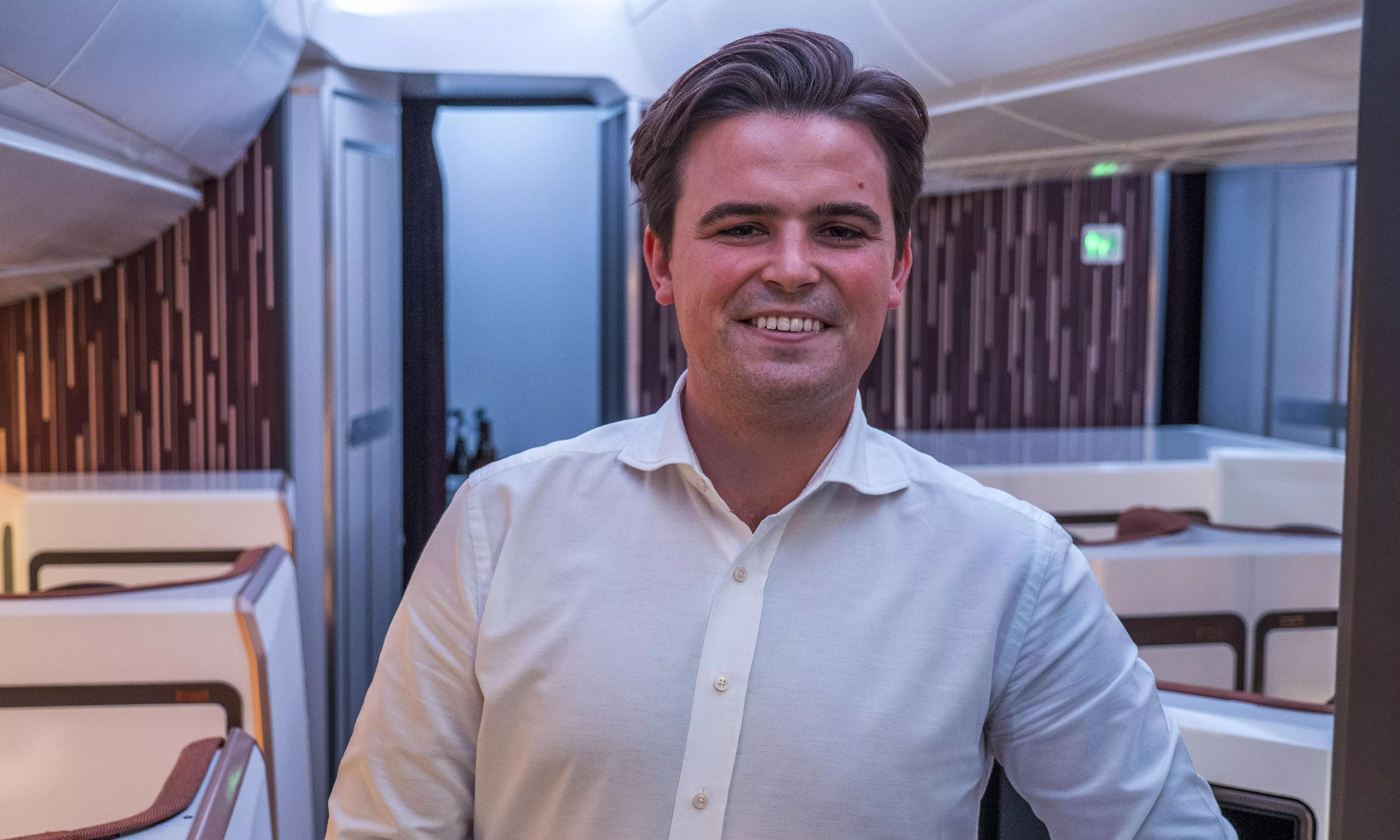
Virgin Atlantic: A latecomer fights to trump competition on UK-India route
In a sector dominated by British Airways, Virgin Atlantic is making an audacious bid to gain ground in India's bustling aviation market

Virgin Atlantic's aggressive expansion in India is a sign of the airline's strategic repositioning in a market that has long been the playing field of British Airways and other major global carriers.
Coming late to a party dominated by British Airways, Virgin Atlantic is making an audacious bid to regain lost ground in India's bustling aviation market. It has set its sights on an ambitious annual seat capacity of 500,000 and is forging strategic local partnerships to further its reach. Virgin Atlantic has been a recognisable brand in Indian skies since 2000, beginning its service in Delhi.
However, in the recent push, particularly in the last five years, the airline's presence has been intensifying rapidly.
Expanding operations
In an interview with The Federal, Virgin Atlantic Country Manager for South Asia, Alex McEwan, said: “...if you look at the journey of 23 years, obviously that's quite a long span of time. (But) we've had quite a lot of growth in the last five years.
“So, throughout our entire history, we've always operated from Delhi. Back in 2019, we started with Mumbai, and then last year, we grew our Delhi service from one service a day to two services a day. So, we've gone from one service in the summer of 2019 to three. And then next March, we'll launch a flight connecting Bengaluru to London, leading to four services.
“The growth in such a short time is quite dramatic… The number of seats is up 250 per cent of the offers that you can get in India. So, we've always been committed to India, and operating here solidly for 23 years.”
The expansion has been challenging. It took 17 years for the airline to introduce another service after Delhi. McEwan pointed out that one of the reasons for the delayed expansion was the inefficiency of their earlier fleet, which consisted of fuel-inefficient four-engine aircraft like the 747s and A340-600s.
The economic dynamics of India have also evolved over the years, with significant growth in passenger and cargo revenue, making it a more viable market now. India is experiencing a surge in air travel demand due to rising incomes and a booming middle class.
Virgin fleet
Virgin Atlantic's fleet today comprises more fuel-efficient twin-engine aircraft such as the 787s, A350-1000s, and A330-300s. The company plans to operate the popular 787 Dreamliner for its new Bengaluru service.
With the additional flight from Bengaluru, the UK-based airline aims to capture up to 50 per cent market share on the new route. It currently has a 25 per cent market share in London-Delhi and London-Mumbai routes, positioning itself as a serious contender in India's rapidly growing aviation sector.
This will establish Virgin Atlantic with four direct daily flights between the UK and India. The focus on extending the network to India's technological hub reflects the airline's strategy of tapping into the burgeoning demand for flights between India and the UK.
The last five years have seen the airline increase its seating capacity by 250 per cent. In 2019, the airline added Mumbai to its list of destinations, and last year, it doubled its Delhi service from one to two daily flights. Currently, there are three daily flights—two to Delhi and one to Mumbai—amounting to 21 weekly flights.
This number will increase to 28 weekly flights next year after the addition of the Bangalore-London route.
Beyond Trans-Atlantic
While London is the critical hub, Virgin Atlantic's reach extends far beyond. Partnering with joint venture allies, it connects Indian passengers to a sprawling network of 12 American cities and over 200 North American destinations.
Virgin Atlantic's strategy is further bolstered by its alliance with Indigo, a leading Indian carrier. The partnership offers 34 connecting points within India, allowing Virgin Atlantic to diversify its consumer base.
“It has been one year since we entered a code share agreement with IndiGo. In that time, we've carried 30,000 passengers. We want to grow that number over time, so we've been working with IndiGo to find ways of growing that figure,” McEwan said.
McEwan said one of the main reasons for Virgin Airlines' rapid scale of operations is its differentiated approach to service. Unlike its competitors, the airline offers a variety of advantages, including strong connections in the United States — a critical factor for many Indian travellers.
“Because we can connect people beyond the destinations, we serve into all of these other destinations in North America. So, we offer quite a lot of choices, even though we're just flying from India to London, from an India perspective. We also offer all of that connectivity beyond North America.”
Cabin configuration
Virgin Airlines offers travellers a choice between three types of cabins: upper class (business), premium economy and standard economy. In economy, the seat configuration is 3-3-3, offering more space than some competitors who go for a 10-across configuration.
McEwan, who joined the airline in 2012, said there are no plans to pick up a stake in any of the domestic airlines in India. He said the airline’s business model leans more towards forming strategic partnerships rather than taking equity stakes. They have recently joined the Sky Team, a global alliance of airlines, and have a significant partnership with Delta Airlines, which owns a stake in Virgin.
The future
While the company has set high targets for market share on its new routes, maintaining this ambitious push will require operational efficiency and keen market adaptability. Currently, there are no plans to serve direct routes from Punjab, a high-demand region, opting instead to rely on connections through Delhi. Such decisions might necessitate re-evaluation based on consumer needs.
The company intends to serve this market via connections in Delhi, facilitated by its partnership with IndiGo.

